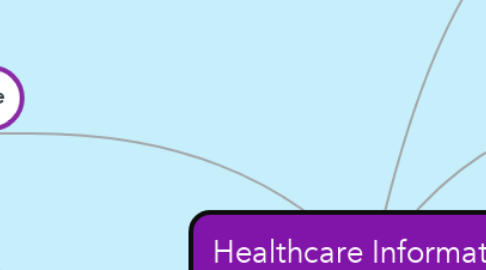Healthcare Information Technologies
by Stacy Renay

1. E-Prescribing Software
1.1. - Generates prescriptions electronically - Physicians send prescriptions directly to pharmacy - Eliminates need to written prescriptions - Eliminates chances for mistakes when filling prescriptions - Eliminates changes of patients misplacing prescriptions - Provides quick and easy access to patient’s medication history - Example software: DrFirst
2. Remote Patient Monitoring
2.1. - Medical sensors to read body functions - Sends data from patient’s home to healthcare professional/facility - Has reduces costs of hospital readmissions - Reduces costs of chronic diseases - Assists with post-discharge care - Results in improved patient care - Example system: Medtronic
3. Master Patient Index (MPI)
3.1. - Critical part of hospital management systems - Aims at connecting patient records to more than one database - Used for future reference by any institution that shares the database - Creates an index specific to each patient, compiling all of their medical records in one place - Reduces duplication of patient records
4. Urgent Care Applications
4.1. - Provides access to healthcare for patients who might require immediate attention - Allows patients to skip the waiting room and have instant access to healthcare - Increases patient satisfaction as it provides quick service - Provides medical services 24/7 - Example software: HealthTap
5. Medical Practice Management Systems
5.1. - Integral part of healthcare system - Addresses administrative and clinical aspects of healthcare - Manages documents, scheduling of appointments - Manages clerical work - Can include processing of claims, billing, and/or payments - Generates reports - Does not typically include patient’s medical information - Example software: eClinicalWorks
6. Electronic Health Records (EHR)
6.1. - Focuses on patient’s medical information - Instant accessibility - Allows for sharing of data across different departments/facilities - Improves quality of patient care - Includes patient information such as medical history, allergies, laboratory results, testing results, diagnoses, and much more - Increases efficiency by reducing and/or eliminating paperwork - Examples EHR systems: CureMD, Care360, EPIC
7. Patient Portal
7.1. - Platform where patients can access their health-related information - Includes information found in the EHR (medical history, treatments, medications, lab results etc.) - Allows patients to schedule appointments, view medical bills, make payments
8. Medical Billing Software
8.1. - Most integral type of health management systems - Automatically generates medical bills by handling entire billing workflow - Manages insurance claims and insurance verification - Provides payment tracking/processing, including late payment notifications
9. Reference Chaware, S. K. (2020, March 18). 8 Types of Health Information Technology and Healthcare Software System. Retrieved from 8 Types of Health Information Technology and Healthcare Software System
10. Made by: Stacy Kennedy


